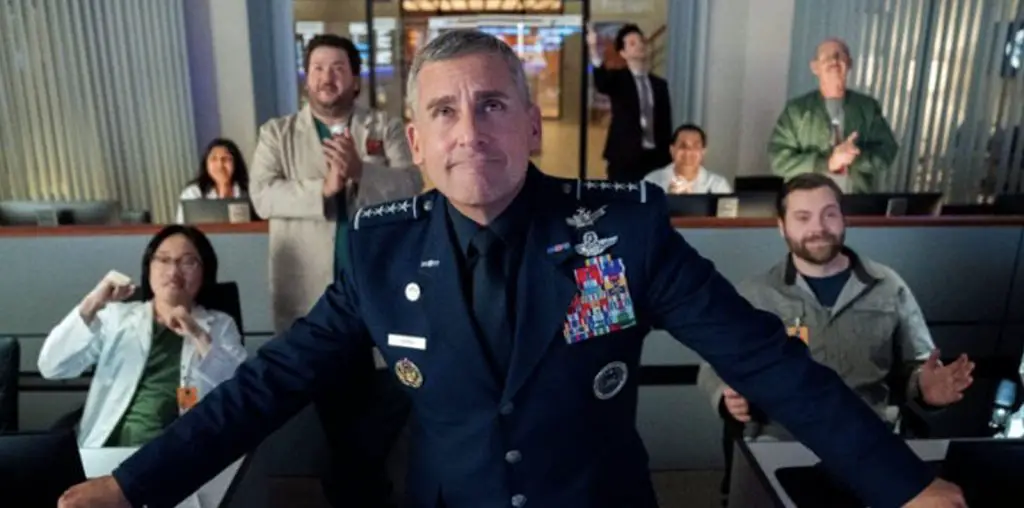
There’s a scene in Cameron Crowe’s film “Singles” in which Campbell Scott pitches to Mayor Tom Skerritt the Supertrain: a high speed commuter train which he believes would solve Seattle’s horrendous traffic problems. The Mayor smiles and nods throughout the impassioned speech. But when Scott is done, Skerritt shuts him down in four words. He’d made up his mind before Scott even opened his mouth. This scene perfectly sums up Seattle’s perpetual transportation issue. There are always people pushing to build one effective public transportation system, but our car-happy government is resistant to it, instead focusing on the roads, which only become more congested. Though they did approve a billion-dollar novelty streetcar to Paul Allen so that we now have not one, but TWO extremely slow trains, neither of which travels more than 2 miles.
Stephen Gyllenhaal’s new film, “Grassroots,” is based on the “mostly true” story of music-critic-turned-politician Grant Cogswell (Joel David Moore), whose passion for making the touristy Seattle Monorail a viable commuter option led to a bid for City Council in 2001. “Singles” was released in 1992. In 2012, Seattle STILL hasn’t resolved the issue. That’s twenty years of congestion (both governmental and vehicular). If you lived here, you wouldn’t be home by now.
If you’re already bored to tears reading about transportation in Seattle, you might want to skip “Grassroots.” That’s mostly what it’s about. On the other hand, if you have even a passing interest in political activism, you just may get something out of it anyway.
An antagonistic idealist, Cogswell is tired of seeing his beloved cityscape marred by gridlock. So he enlists his friend, Phil Campbell (Jason Biggs), a freshly unemployed journalist, to be his campaign manager. They assemble a peaceable collective of rag-tag youths and embark on an uphill battle to unseat the deep-seated incumbent who stands in the way of their vision of a traffic-free Seattle.
Based on the book “Zioncheck for President,” written by the real Phil Campbell, “Grassroots” is very much a Seattle film. It’s difficult to imagine this story happening in any other city (except maybe Portlandia). Gyllenhaal (who also co-wrote the script) and cinematographer Sean Porter do an excellent job setting the scene. In fact, the authenticity is almost surreal for a local such as myself (especially since I voted for Cogswell in that very election). Though I found the name-dropping of local businesses and culture a little distracting, it was quite a treat it is to see a Seattle-set film that was actually shot on location. There have been several films shot here as of late, but this is not in keeping with tradition. It would certainly soften the impact for Grant Cogswell to gush about his passion for the Emerald City, whilst gesturing toward Vancouver B.C.
Cogswell’s idealism is contagious. But because of his foul-mouthed abrasiveness, his campaign gets off to a rocky start. He mostly speaks with his outdoor voice, spouting fervent, but not always articulate, speeches. He is, in every way, a foil to his opponent. The incumbent, Richard McIver (Cedric the Entertainer) isn’t a bad guy, but he is a career politician who knows how to work the system to get what he wants. Cogswell is not a politician and the system isn’t working for him, so he sees his campaign as a moral imperative. Politics tends to be very loosely related to actually accomplishing any significant structural change. Grassroots campaigns like Cogswell’s attract people for whom politics is more ideology than paycheck. It’s an indispensable form of checks and balances.
Just when Cogswell’s campaign starts to gather momentum, 9/11 happens and it is temporarily derailed. Gyllenhaal crafts the most accurate and honest cinematic depiction I’ve ever seen of the emotional fallout after helplessly watching those buildings crumble and burn. Seattle is 3000 miles away from Ground Zero, yet our world seemed to come to a halt as everyone tried to process those images and figure out how to carry on. Inevitably, things became divisive, but during those early days, everyone was on the same page. Reportedly one of the bigger moments of artistic license, the movie version of Grant Cogswell decides that what he must do to counteract the destruction is to build that monorail. He delivers this message in a rousing speech to a bunch of stunned canvassers who are suitably inspired. Even if that specific scene never really occurred, elements of his speech still ring exceedingly true.
Not so relevant, however, is a fabricated subplot in which the campaign negatively affects Campbell’s relationship with his live-in girlfriend (Lauren Ambrose). It’s an awkward, unnecessary attempt to insert someone with boobs into the narrative (besides the miniscule part Cobie Smulders has as a monorail activist). Fortunately, it doesn’t detract too much from the more significant themes of passion, perseverance, and community.
Amidst all this seriousness is still a fair amount of comedy. Surprisingly, Jason Biggs is the straight man for much of it. Several jokes have an “in” quality, especially ones involving the weekly hipster rag with which Campbell and Cogswell (along with much of Seattle) have undulating relationships. Nonetheless, a character as idiosyncratic as Cogswell can’t help but produce a couple of laughs from the population at large. People of a certain age will also get a hearty chuckle out of the pre-Smartphone tribulations depicted.
Though “Grassroots” is, first and foremost, a film for the campaign’s contemporaries, it’s also a call-to-action to modern youth everywhere to get involved in local politics. When things aren’t really going our way, it’s easy to forget that every vote really does count.

